Addiction recovery goes beyond a lifelong commitment to quitting drugs or alcohol. Healing means rebuilding your mental, emotional, and physical well-being – and that includes adopting new habits and activities that help you stay grounded, connected, and fulfilled.
At NEM Recovery, we help our clients rediscover themselves by recommitting to their mental wellness and exploring healthy, enjoyable ways to fill time and energy. Recovery is a second chance – and finding meaningful activities is a critical part of the puzzle.
Finding Joy and Purpose Without Substances
Substance use often begins as a misguided way to cope with underlying stress, anxiety, depression, trauma, or loneliness. Those root causes won’t disappear when you get sober – indeed, they may become even more pronounced without the numbing effects of drugs and alcohol.
It will be far easier to fall back into old, unhealthy patterns if you lack the tools to deal with challenges. Incorporating positive, substance-free activities into your daily life is one of the best ways to support your mental wellness.
Why You Need New Hobbies in Recovery
When you’re newly sober, you may find yourself with hours of free time that you used to spend drinking, using, or getting over the effects of substance abuse. Two significant relapse triggers, boredom and cravings, can creep in if you don’t intentionally fill this gap.
Developing new interests and hobbies helps you:
- Establish structure and routine
- Discover your identity outside addiction
- Build confidence and a sense of purpose
- Connect with others in healthy ways
- Find joy and stress relief without turning to substances
Healthy Mental Health Activities to Try in Recovery
Here are some simple ways to support your mental health and lead a fuller life.
1. Exercise and Movement
Regular physical activity is one of the most effective ways to reduce anxiety, boost your mood, and help you sleep better. You don’t have to join a gym – try going for daily walks, practicing yoga at home, or joining a recreational sports league.
2. Creative Expression
Creative outlets allow you to process your emotions and reconnect with your inner self. You might explore:
- Drawing, painting, or photography
- Playing a musical instrument or writing music
- Journaling, poetry, or storytelling
3. Mindfulness and Meditation
Learning to slow down and sit with your thoughts can bring clarity and calm. Consider:
- Daily meditation or guided breathing exercises
- Spending time in nature to ground yourself
- Practicing gratitude through a simple daily reflection
4. Volunteering and Helping Others
Giving back is an empowering way to feel connected and purposeful. Helping others also reminds you how far you’ve come. Look for volunteer opportunities near you, such as a homeless pet shelter, food bank, or peer mentorship group.
5. Learning and Growth
Recovery is a chance to grow intellectually and emotionally. Challenge yourself to take a class or workshop, read nonfiction books, or set new goals toward your personal best.
6. Reconnecting With Loved Ones
Addiction tends to damage relationships. Use your recovery to spend quality time with your loved ones. You can attend family therapy and work on healing together.
Recovery Is About Rebuilding Your Life
Committing to sobriety requires you to close one chapter in your life and start replacing old patterns with meaningful mental health activities. Prioritizing your mental health will give you a foundation for long-term healing and resilience.
NEM Recovery clients learn to overcome substance use by redefining what brings them joy, connection, and purpose. Our small, supportive community and personalized care plans will help you heal from the inside out. Reach out today to learn what it means to thrive.


